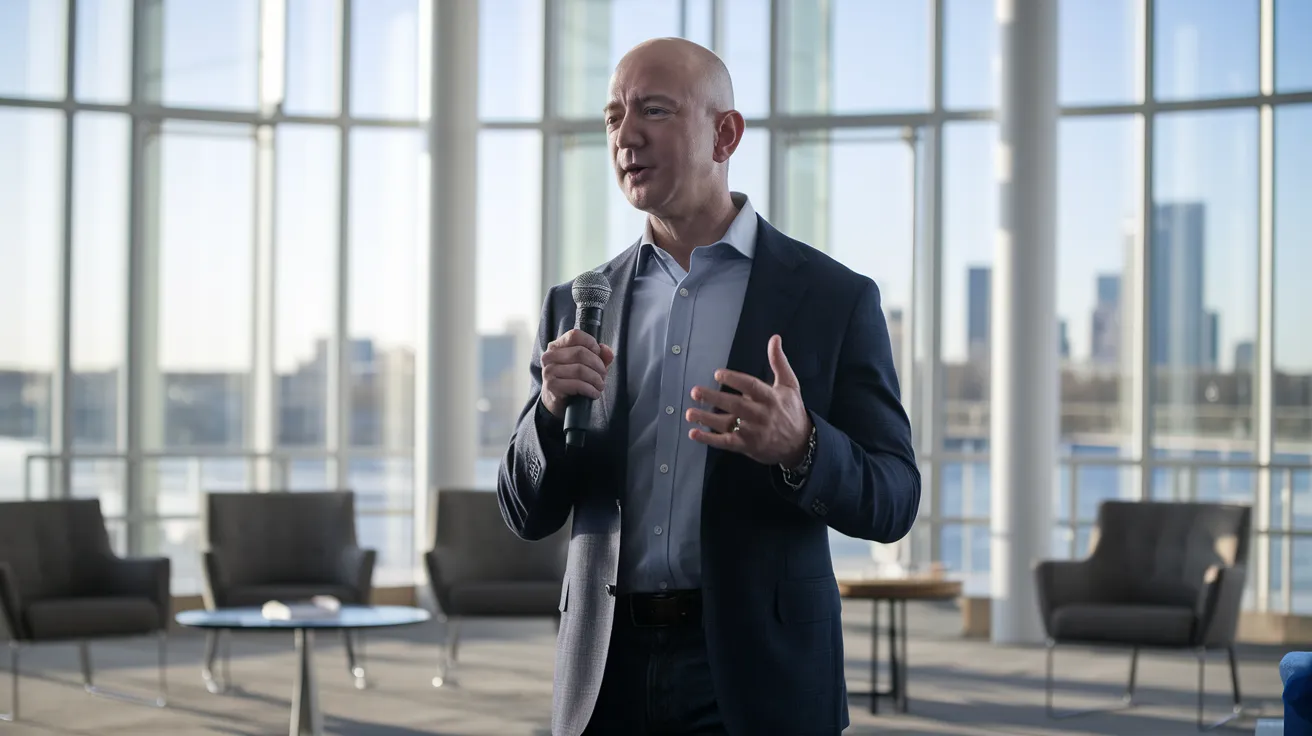Jeff Bezos on AI Industrial Bubble

TURIN, Italy — Artificial intelligence is currently described by Amazon founder Jeff Bezos as existing in an “industrial bubble,” yet he affirms that the underlying technology is authentic and poised to deliver significant benefits to society.
The term “bubble” often pertains to periods characterized by inflated stock prices that are not grounded in business fundamentals, akin to the notable dotcom crash of 2000. During this era, the value of numerous internet companies drastically decreased as the market corrected itself.
During a discussion at Italian Tech Week in Turin, Exor CEO John Elkann queried Bezos regarding indicators of a speculative bubble encompassing the AI sector. Bezos confirmed, “This is a kind of industrial bubble,” elaborating on the characteristics inherent to these phenomena. He noted that during such bubbles, there is a disconnect between stock valuations and the fundamental realities of the businesses involved.
Bezos elaborated that excitement levels around artificial intelligence mirror those typically observed during speculative bubbles. “The second thing that happens is that people get very excited, like they are today about artificial intelligence,” he noted, suggesting that the current investment climate is marked by indiscriminate funding of both innovative and less viable ideas concerning AI.
He provided an example of a six-person company securing billions in funding, a practice he described as unusual and rampant in today’s market, implying the presence of excessive optimism among investors regarding AI potentials.
However, Bezos argued that the existence of industrial bubbles can yield positive outcomes. Citing the biotech and pharmaceutical bubble of the 1990s, which, despite leading to numerous company failures, resulted in the development of life-saving drugs, he posited that the bubble dynamics could ultimately benefit society. “The bubbles that are industrial are not nearly as bad; it can even be good because when the dust settles and you see who are the winners, society benefits from those inventions,” he remarked, asserting the reality of AI’s transformative potential and the imminent societal advantages it promises.
Bezos is not alone in voicing concerns over an AI bubble. OpenAI CEO Sam Altman echoed similar sentiments in August, and various investors have raised questions regarding the sustainability of the AI market growth. Goldman Sachs CEO David Solomon expressed hesitation at the Italian Tech Week, acknowledging the potential for a market correction as excitement wanes and skepticism re-emerges among investors. He pointed out, “There will be a reset, there will be a check at some point, there will be a drawdown,” underscoring the importance of maintaining a balanced view of both benefits and pitfalls in the current investing climate.
As the discussion around the AI bubble continues to unfold, Karim Moussalem, chief investment officer of equities at Selwood Asset Management, indicated that the current trajectory of AI investments resembles previous speculative manias in market history, reinforcing the need for prudent evaluation and understanding of the industry’s long-term viability.